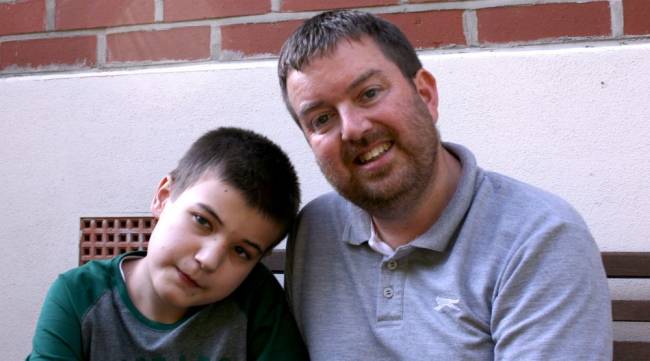That blog title caught your attention, didn’t it? A controversial topic to grapple this blog post, but one that is so important for us all as parents to understand and to communicate effectively…

Thankfully our understanding of disability has increased enormously over the years, however the belief that parents are to blame for their child’s disability or additional needs still clings on in some communities and cultures. Whether it is the unfounded belief that the “sins of the parents” are in some way to blame for the child’s disability, or just the misguided view that “they must have done something wrong during pregnancy to cause it”… the finger of blame can be firmly pointed at the parents.
Imagine what that must be like for these parents…
Firstly, they have gone through all of the emotional turmoil of discovering that their child has a disability or additional needs, the confusion, shock, maybe even sense of grief, that they may have experienced through the process of diagnosis (if they’ve even got that far!). They may have already been poorly treated and left unsupported by their immediate family and friends at that stage, resulting in an unwillingness to tell anyone else about the needs of their child as they might be fearful of the reaction. If they did tell others, reaching out for further essential support, to be blamed themselves for the disability of their child is unspeakably cruel to both the parents and the child, and is totally wrong.
Now in the midst of all of this, it is fair to point out that some children are disabled as a direct result of their parents’ actions; children born with foetal alcohol spectrum disorder for example, or children born with disabilities caused by violence inflicted on their mother during pregnancy by an abusive partner. Each of these cases, and others like them, are really important, and are not trivialised at all by this blog, however they are a very small minority of the total number of children born with, or developing, a disability or additional needs. In the overwhelming majority of cases, this is nothing to do with the parents at all, unless you deem to hold them responsible for passed on hereditary conditions… I don’t.
Now, it’s no secret that I am a guy of faith, so I wouldn’t be true to myself if I didn’t talk about some of the issues I’ve been confronted within the context of faith, especially when it comes to prayer. You don’t have to necessarily be affiliated with a religious group, or even believe in a supernatural power to read this bit – so hear me out, because there might be something for you in this section too… Some communities and cultures pray for healing for children with disabilities or additional needs. I have a faith and yet I’ve written in my personal blog about how I don’t pray for healing for my 15-year-old autistic son any more, and haven’t done for many years. I guess that’s something for me to personally reckon with, and I wonder how many more dads out there have stopped asking or wanting for their child to be ‘healed’ or ‘mended’. Is it about part of growing more accepting of the additional need or condition over time? Or is it about becoming more comfortable in handling the pressures surrounding being an Additional Needs Parent? James’ autism is a neurodiversity; his brain is wired uniquely; it means he lives in and responds to the world differently to me, he understands and communicates differently. As a parent, I want my son’s mental, emotional and physical health and wellbeing to be at its best – so of course I think about what life would be like for him (and me and his mum and sister) if James’ autism simply… disappeared. But paradoxically I am also then left wrestling with the thought that James wouldn’t be James if that happened – and I love my son as he is – and who he is, can in part, be attributed to his autism.
Instead of parents being wrongly blamed, or even worse parents blaming themselves, tearing themselves apart with misplaced guilt over the disability or additional needs of their child, let our children inspire us by who they are, delight us in who they have been made to be, and let us do away with fault, blame, guilt and all of the other negatives… they don’t help anyone, least of all our children.
Liked this article? You might find these related articles interesting…
ADDITIONAL NEEDS PARENTING: ALL YOU NEED IS LOVE
ADDITIONAL NEEDS PARENTING: UNPREDICTABLE, IMPACTFUL, INSPIRATIONAL
UNDERSTANDING AND RECOGNISING AUTISM







